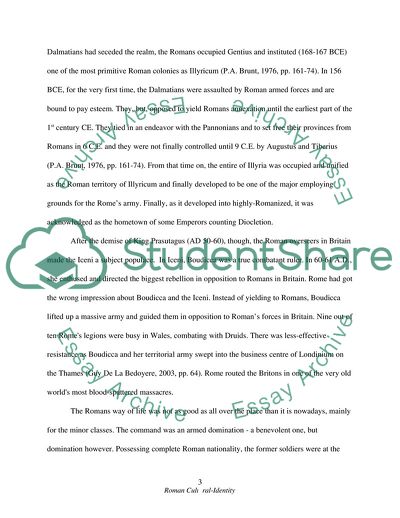Cite this document
(Did the Roman State Seek to Impose a Roman Cultural Identity on Provin Case Study, n.d.)
Did the Roman State Seek to Impose a Roman Cultural Identity on Provin Case Study. https://studentshare.org/culture/1707472-check-assignment-criteria-where-there-is-a-choice-of-5-questions-of-which-you-can-choose
Did the Roman State Seek to Impose a Roman Cultural Identity on Provin Case Study. https://studentshare.org/culture/1707472-check-assignment-criteria-where-there-is-a-choice-of-5-questions-of-which-you-can-choose
(Did the Roman State Seek to Impose a Roman Cultural Identity on Provin Case Study)
Did the Roman State Seek to Impose a Roman Cultural Identity on Provin Case Study. https://studentshare.org/culture/1707472-check-assignment-criteria-where-there-is-a-choice-of-5-questions-of-which-you-can-choose.
Did the Roman State Seek to Impose a Roman Cultural Identity on Provin Case Study. https://studentshare.org/culture/1707472-check-assignment-criteria-where-there-is-a-choice-of-5-questions-of-which-you-can-choose.
“Did the Roman State Seek to Impose a Roman Cultural Identity on Provin Case Study”. https://studentshare.org/culture/1707472-check-assignment-criteria-where-there-is-a-choice-of-5-questions-of-which-you-can-choose.


